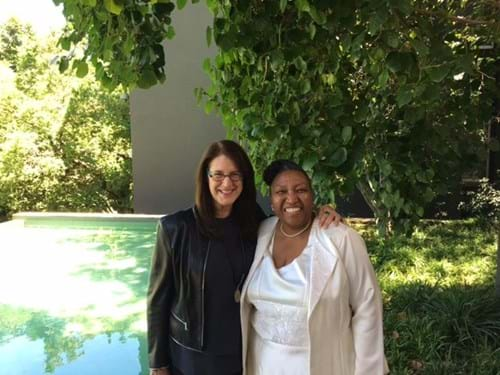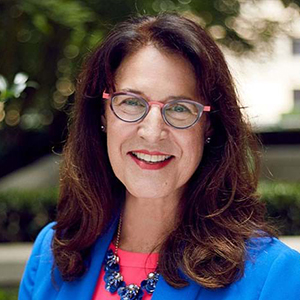
Doing Well & Doing Good in South Africa
Today, on International Women’s Day, WE South Africa announces the establishment of the WE Development Trust, a women-run nonprofit that will own about 30 percent of our local company and partner with the St Mary’s Foundation to provide first-rate educational opportunities to young women from low-income families in Johannesburg.
The trust is part of South Africa’s Broad-Based Black Economic Empowerment initiative (B-BBEE), a program established in 2003 to give meaningful economic opportunities to nonwhite South Africans. You don’t need to know much about this country’s history to understand why the B-BBEE is necessary. Starting in the 1800s, first Dutch and then British settlers claimed black-owned land as their own and prevented native Africans from working at skilled jobs; then, from 1948 until 1994, apartheid laws prevented black people from getting high-quality education and owning businesses or property. Nonwhite people were forcibly removed from their homes and resettled in townships far from urban centers, where jobs and opportunity were scarce.
These structures of exclusion ensured that generations of black South Africans didn’t have much of a chance to build wealth or prepare for well-paying jobs. As a result, after apartheid, the government began to promote black economic empowerment by encouraging white- and foreign-owned businesses to transfer shares to black investors. That’s what the B-BBEE does: Among other things, it recommends quotas for black ownership and incentivizes the training and promotion of black workers and executives. The goal is better jobs, more income equality and nationwide economic progress.
B-BBEE compliance is an important initiative for all businesses. WE has participated for several years and today expanded its efforts by introducing the WE Development Trust as our newest stakeholder. And it’s why one of our new trustees is the businesswoman and activist — and all-around maverick — Thandi Chaane.
Today, Thandi is a member of Siyakha Consulting, a firm that focuses on black economic empowerment, diversity management and development, and long-term sustainability in a changing South African economy. That’s how we met. But last fall, when I was in Johannesburg, I got to know her a little better — and when I heard her whole story, I knew she was a great fit for WE.
During the 1970s, Thandi was a teacher in Soweto, one of the segregated townships southwest of Johannesburg. Like all of South Africa’s townships, Soweto was what one writer calls “a dumping ground” for black people, far away from jobs and services. Its sprawling shantytowns did not have paved roads or water, electricity or sanitation services.
The townships did have schools, but they were deliberately overcrowded and underfunded. (After all, the point of apartheid was to disempower black people, and we know education does just the opposite.) Without government support, it fell to individual teachers like Thandi to give the township’s children the tools they needed to fight for a better life for themselves and their families.
On June 16, 1976, thousands of black students from the Soweto township schools took to the streets to protest a federal law that said black schools in South Africa must teach their lessons in Afrikaans — what Desmond Tutu called “the language of the oppressor” — and English instead of the indigenous languages that most black students spoke. This law cut off even the small sliver of opportunity that teachers like Thandi were able to offer. How could students learn in a language they did not speak?
And so, on that day, young protestors filled the streets of Soweto, marching to a local stadium for a rally against the language law. Then the police started shooting.
Probably the most famous photograph of that day — in fact, it’s one of the most famous news photos ever taken— shows a blood-covered high school student running away from the police carrying the body of a gravely wounded 13-year-old boy named Hector Pieterson. Alongside him runs Pieterson’s sister Antoinette in her school uniform, screaming in terror. It’s an unbelievably powerful image, and it got the world’s attention.
 Thandi’s experience during the Soweto Uprising of 1976 is part of what made her who she is today. She’s a fighter: for fairness, for good governance, for equality for black people and women, and for high-quality education for all. That’s why she agreed to join the WE Development Trust. She introduced us to the St Mary’s Foundation, and she shares our commitment to making sure that as many young South African women as possible have the chance to go to school, and stay in school, no matter what color they are or how much money their family has. Acting on her values and making a difference where it matters — Thandi has dedicated her whole life to this promise, and we’re honored now to be a part of it.
Thandi’s experience during the Soweto Uprising of 1976 is part of what made her who she is today. She’s a fighter: for fairness, for good governance, for equality for black people and women, and for high-quality education for all. That’s why she agreed to join the WE Development Trust. She introduced us to the St Mary’s Foundation, and she shares our commitment to making sure that as many young South African women as possible have the chance to go to school, and stay in school, no matter what color they are or how much money their family has. Acting on her values and making a difference where it matters — Thandi has dedicated her whole life to this promise, and we’re honored now to be a part of it.
“True empowerment impacts those at the grassroots level — the youth, the previously disadvantaged, and those who may not otherwise have had such opportunities, through circumstances out of their control,” Thandi told us. “Businesses cannot operate in isolation from the communities in which they are situated. The WE Development Trust, in collaboration with the St. Mary’s Foundation, will make a difference where it matters. Together, they will empower girls through education and give them the opportunity to become the future leaders of our country. It is these girls who will understand the power of education to change lives and who will become ambassadors for a truly transformed South Africa. When you empower a woman, you empower a nation. That’s exactly what this trust sets out to achieve.”
Read more posts from WE Global CEO and Founder Melissa Waggener Zorkin here.
Follow Melissa on LinkedIn and Twitter.
The latest blogs from WE
Decoding Gen Alpha: A Primer on the Next Gen of Consumers
Why Gen Alpha Will Fuel Spending This Season
Why Reputation Is a Business Driver in Healthcare


